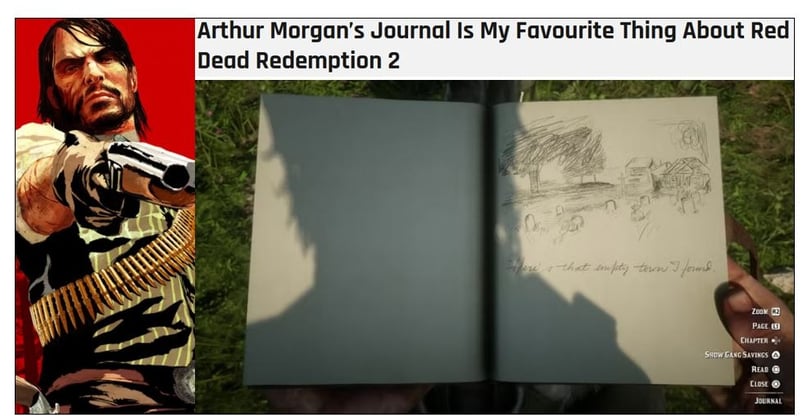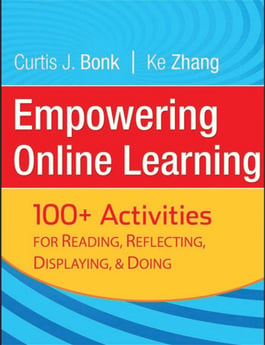CREATIVE LEARNING EXPERIENCES THAT CHANGE BEHAVIOR
Read & Not Dead is Better than Red Dead
Video games are "reflection machines" & one of the reasons we love 'em
LEARNER REFLECTION
Lesley S
6/3/20253 min read


Of all the stuff written, vlogged, and said about video games, what flies under the radar is the more introspective aspect. Fans of RDR2 obsess endlessly over outlaw Arthur Morgan’s hidden artsy side. And some full-blown philosophizin’ goes down on an epic scale, if these comments from gamers are anything to judge by.
“So, yeah, we were like four people playing Monster Hunter. We were sometimes reflecting together about strategies or new weapons and tactics against the monsters and so on. And I also searched strategies on the internet and I’ve reflected also at home.”
“I definitely prefer games where it’s not clear-cut, because I like stories, and I like thinking. I like it when a game presents you with a decision and you’re like: Actually, hold on! That feels wrong to me to do.”
“To wield that kind of power, I mean, which is exactly why I play games like that. Where else could you do stuff like that, if not in a game? But I always have it in the back of my mind. This utilitarian philosophy stuff then comes back to me: Which is worth more? What’s the outcome? And precisely because I’ve got this power, I think so much about it. And then I can’t not think about it. It doesn’t mean I have to like these decisions.”
"While attempting to solve a puzzle, she recalled a previous scene she had witnessed in Gabriel Knight, from which she deduced the puzzle’s solution: “I kept dying by this stupid snake in the museum. And as I lay in bed and I closed my eyes, I started thinking ’Ok, what else is in the room?’ And as I was thinking about this fan, that it had made the snake very scared...I realized that I had the answer to the puzzle.”
“If you water down the point of Phantasmagoria... Don’t get freaked out next time you’re having an argument, ok? It’s just an adult part of life. It doesn’t mean your father is going to turn into a demon and shove giblets down your mom’s throat."
SOURCE: “A Game that Makes You Question...” Exploring the Role of Reflection for the Player Experience (full text)
When these gamers think back to different aspects of game play and compare how things went - what went well, what sucked, and what they could have done differently - this “point of comparison” is one of the most powerful tools of learning: reflection. Reflection changes how we behave...which is kinda supposed to be the point of education – from the most traditional college classroom to the most horrible info-dump of a compliance training.
But unlike the evil compliance training, games actually elicit behavioral change.
In no small part because they encourage participants to engage in reflection. "This reflective process helps learners determine what they can do to improve or change," explains Dave Eng, EdD, a senior eLearning Instructional Designer at KnowBe4 who also teaches at New York University’s School of Professional Studies.
“Higher levels of reflection often yield the most impactful learning, so educators should strive for transformative and critical reflection from players.” - Dave Eng, EdD
Reflection also works at work. Research has found that people who reflect on what they’ve learned and then share their reflections with co-workers perform significantly better (as measured by performance on brain-teaser puzzles) - a fairly whopping 25% better. Not only that, they feel more capable. “
"When we stop, reflect, and think about learning, we feel a greater sense of self efficacy." - Harvard Business School Professor Francesca Gino
In fact, reflection seems to work its magic on many more levels, as two professors of learning technology discuss in EMPOWERING ONLINE LEARNING: 100+ Activities for Reading, Reflecting, Displaying, and Doing (John Wiley & Sons, Inc; 2008):
"Simple exposure to an expert in any discipline and reflections on their ideas or performances can rouse to life your learning passions and nurture life goals that were not even dreams before." - Professors Curtis Bonk & Ke Zhang

